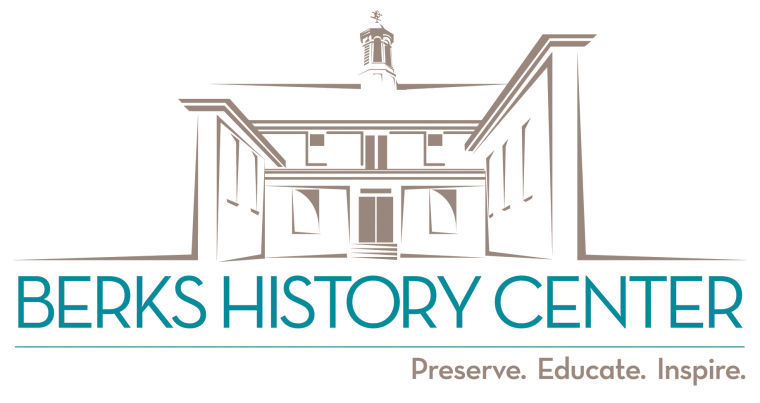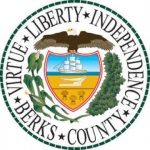You may recognize the name “Henry Janssen” from recent news surrounding the sale of his former Wyomissing home. At the Berks History Center, Mr. Janssen is the namesake of our Library and Archival facility on Spring Street. Our Library is also the home of many items related to the businesses Janssen founded with Ferdinand Thun–including early ledgers from Textile Machine Works and bound copies of The Yarn Carrier, the magazine published for Wyomissing Industries employees. Henry Janssen was born on February 8, 1866; and, in honor of his birthday, our Library staff wanted to take a moment to remember Mr. Janssen’s contributions to Berks County and share a few tidbits about his life.
Heinrich Janssen was born in Barmen, Germany (then Prussia) in 1866. Barmen became an center for industry in the 19th century. The town was situated between hills and a river–not unlike Janssen’s future hometown–and became known for its textile industry and coal mining. Janssen’s future partner, Ferdinand Thun, was born a few blocks away in Barmen, on February 14, 1866. Both lived and studied in Germany until the late 1880s. Janssen studied manufacturing before coming to New York City to work in a braiding plant in 1889. It was in New York that Janssen met Thun and, after discovering their similar childhoods and textile skills, they decided to go into business together.
Janssen and Thun’s first business venture in Berks County was a small factory on Cedar Street in Reading, which they opened in 1892. This was the beginning of Textile Machines Works. In 1896, they moved their business to Wyomissing. The partners incorporated Narrow Fabrics in 1900, after they began using their own machines to make braids and other items. Six years later, Janssen and Thun added knitting machines to their lineup, which they used to produce their own range of stockings (specifically full-fashioned, which was the trend at the time). This company was incorporated as Berkshire Knitting Mills. According to many accounts, Janssen was a perfectionist. He insisted that the products produced by his companies were of the highest standards and he wanted his employees to maintain that high quality in themselves. The February 1948 edition of The Yarn Carrier (which was dedicated to Janssen following his death) included a quote by Janssen from March 1929. He advised one of his employees in German, of which the English translation is roughly: “Be thorough and accurate in both large and small things. May this always be your guide and success will never fail you.” (The Yarn Carrier vol. 17, no. 11, page 12).
Henry Janssen was one of six children. At the time of his death, Janssen had two surviving siblings. Paul Janssen was also a businessman and later Mayor of Offenbach, Germany; while Johannes served in the German Parliament in the early 1900s. During their childhood, their father, Albert, owned a printing and book shop in Barmen. Henry married Wilhelmina Raeker in Brooklyn in 1890. Their son, Harry Janssen, died during WWI. Janssen’s two son-in-laws continued to work for Wyomissing Industries after his passing. In addition to their role at Wyomissing Industries, Janssen and Thun developed the Borough of Wyomissing. Janssen served on the Borough Council for forty years, while he also served on the Reading Hospital Board (including ten years as President). Janssen became a US citizen less than ten years after immigrating from Germany. His death on January 28, 1948 shocked many–not only in the community, but around the world. From the pages of tributes printed in The Yarn Carrier following his death, it is obvious Janssen’s influence was far-reaching. Here are just a few:
“…He was a driving force in the building of an industrial empire unparalleled in the textile industry, and unique in the entire U.S. industrial force.”
—Knit Goods Weekly
“He will be missed not only as a pioneer of the hosiery industry but also as an outstanding person of the deepest humanitarian interest.”
–Robert Reiner, Inc.
“Every day was too short for this man who rate the title of industrial tycoon, titan of industry, capitalist or whatever the popular terms of the day. He could have rested on his laurels. He didn’t.”
–Herbert C. Kohler, in a Reading Times editorial, January 30, 1948.
Janssen’s philanthropic and industrial contributions live on. The Reading Health System has grown exponentially since Janssen and Thun first made their contributions. Families still flock to the grounds of The Reading Public Museum–another project of the partners. Textile Machine Works products are still in use today. In Wyomissing: An American Dream, the father and son team at Barbett Industries in Reading are shown using Thun and Janssen designed products that are over a hundred years old. They argue that these machines were made to last, unlike many produced today. This is a testament to Janssen’s commitment to perfection. In honor of his industrial expertise and advances, Barmen (now part of Wuppertal, Germany) named a street after Henry Janssen, which intersects with the street named for Ferdinand Thun.
If you would like to learn more about Henry Janssen, PBS39 produced a wonderful documentary on Janssen, Thun, and Wyomissing called Wyomissing: An American Dream. It is available to view both on the PBS39 website and on YouTube.




